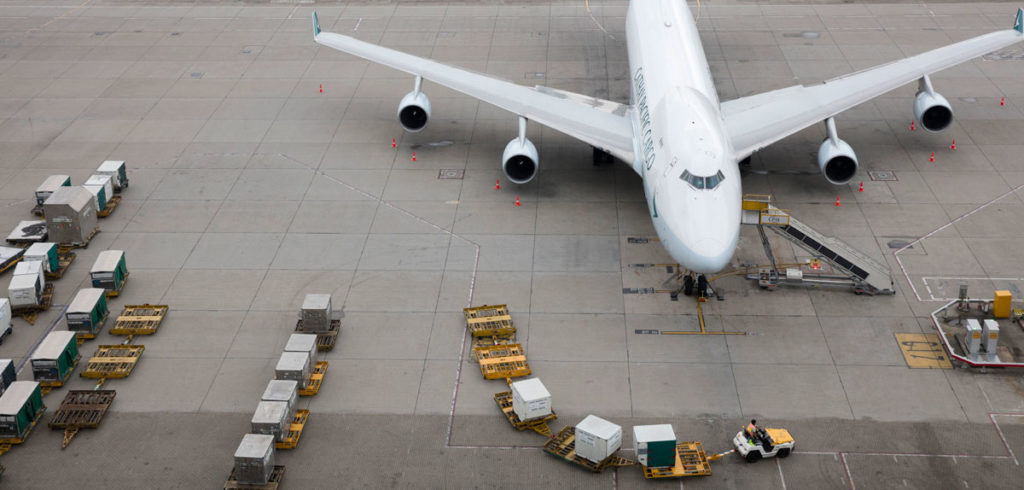IATA is demanding governments keep air cargo supply chains open so the industry can help tackle coronavirus.
The COVID-19 crisis has grounded the global passenger aircraft fleet, which normally transports around half of air cargo shipments.
Airlines are meeting demand by re-introducing freighter services or using passenger aircraft to transport cargo.
The International Air Transport Association (IATA) is urging governments take urgent measures to keep cargo in the air.
The key demands are fast-track procedures for overflight and landing permits for cargo operations; exempting flight crews from 14-day quarantine requirements; temporary traffic rights for cargo operations; removing impediments including overflight charges, parking fees and slot restrictions; and lifting operating-hour curfews for freighters.
Alexandre de Juniac, director general and CEO of IATA, said, “Air cargo is a vital partner in the global fight against COVID-19. But we are still seeing examples of cargo flights filled with life-saving medical supplies and equipment grounded due to cumbersome and bureaucratic processes to secure slots and operating permits. These delays are endangering lives. All governments need to step up to keep global supply chains open.”
Glyn Hughes, global head of cargo at IATA, echoed de Juniac’s comments, saying air cargo is on the frontline fighting COVID-19 and keeping supply chains moving.
He said, “We can only continue to do this if we work together with the support of governments. Keeping supply lines open also supports jobs in local economies, for example producers of perishables in Africa and Latin America. We are stronger together.”
Airlines are making their aircraft available, with Delta Air Lines, American Airlines and United Airlines using passenger aircraft for cargo flights.
Airlines including British Airways, Cathay Pacific, Emirates and Swiss are making aircraft available for charter flights.
Ethiopian Airlines is transporting medical equipment via its hub in Addis Ababa to other African nations, including a donation from the Jack Ma Foundation.
FedEx Express is helping the US government transport test specimens from more than 50 remote drive-thru testing centers across 12 states.
Airbus has transported two million face masks from China to Europe on a test A330-800, to name a few airline operations.


